Magnitude 5.9 Quake Kills Three, Injures Hundreds in Iran

An earthquake with a magnitude of 5.9 hit northwest Iran near the border with Turkey on Saturday, killing at least three people and injuring over 800.

An earthquake with a magnitude of 5.9 hit northwest Iran near the border with Turkey on Saturday, killing at least three people and injuring over 800.
Iran’s state news agency IRNA cited the Iranian Seismological Center that the quake struck the city of Khoy in West Azarbaijan province.
Mehr news agency reported that 70 villages had been damaged adding that relief operations are underway.
Damage was reported to buildings and some of the infrastructure in the area with some neighborhoods experiencing power blackouts too.
The city had experienced several smaller butconsiderable quakes in the past months with no casualties or significant damage.
Videos shared on social media show heavy traffic in the streets of the city late Saturday as residents abandoned their homes. Many have also been stationed in temporary tents amid freezing temperatures.
Iran is crisscrossed by major geological fault lines and is one of the most earthquake-prone countries in the world because it is located where the Arabian, Indian, and Eurasian tectonic plates meet.
Iran has had a terrible history of massive earthquakes in recent decades, with some killing up to tens of thousands of people and causing billions in damages, such as the magnitude 6.6 quake in Kerman province in 2003 that killed 31,000 people and flattened the ancient city of Bam.
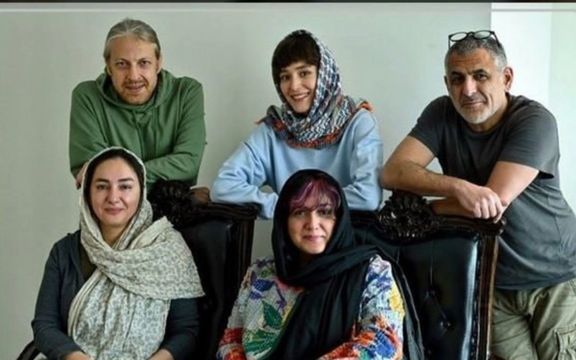
Seven actors in Iran have boycotted their own film to be screened at the state-sponsored Fajr Film Festival in protest to the bloody crackdown on protesters.
“We avoided participation in Fajr Film Festival in the past few years but this year we are [even] ashamed our names [mentioned] in the festival. We would stop the film’s screening if we had any option to do so,” Baran Kowsari, Mani Haghighi, Hanieh Tavassoli, Ali Mosaffa, Fereshteh Hosseini, Nahal Dashti, and Amir-Hossein Fathi said in a statement published on Instagram.
Alluding to the name of the film they all played in, 'Why aren’t you crying?', Hanieh Tavassoli said on social media that in the past few months she has “been crying a lot” and that she did not have the mental strength to take part in the festival. “The film’s participation at any event is not and will not be my choice or decision.”
The film’s producer, Reza Mohaghegh, who has submitted the film to the festival, apparently without the consent of others, is the son-in-law of a high-ranking Revolutionary Guards (IRGC) official.
Director Kiumars Pourahmad whose ‘Case Is Open’ has also been submitted to the festival by its producer in an Instagram post said he withdraws from the festival.
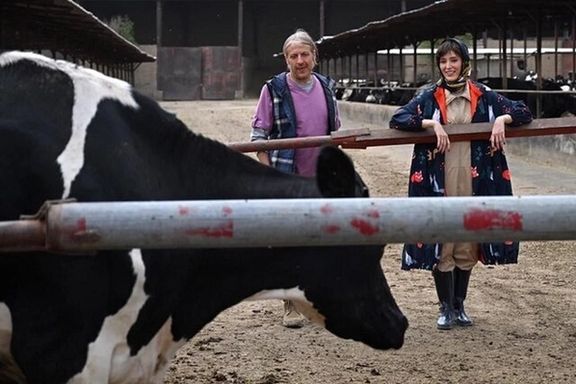
Presumably referring to the IRGC’s extensive involvement in the film industry, Pourahmad protested that in the past few years the festival has turned from “Iran's film festival” into “a certain entity’s festival”.
Mohammad-Ali Talebi, Slovakia-based writer and film director told Iran International that IRGC-affiliated film companies such as Ofogh and Owj are spending huge sums to make films and driving most independent filmmakers out of the industry. Those who are withdrawing from the festival have taken a remarkable step because this means that they will no more have a chance of working in Iran, he said.
During this time, he explained, the festival meant nothing to him and even less so “in this bloody and grim year”. “What’s the point of celebrating, what’s the point of a festival, with all the sorrow [for the deaths of hundreds of protesters] that sits in our hearts?” he wrote.
The Fajr Film Festival has existed since 1982, highlighting Iranian cinema for 10 days, during a period known as the Ten Days of Dawn (Fajr). The first day of the Ten Days of Dawn marks the anniversary of the return of Ayatollah Khomeini to Iran from Paris and its last day, the victory of the Islamic Revolution in 1979.
The film festival and its sister theater festival have been losing their past aura and popularity over the years. Filmmakers and actors have been periodically boycotting the event, including in 2019, in protest to state violence against protesters.
Meanwhile, the head of the state broadcaster (IRIB), Payman Jebelli in a letter to President Ebrahim Raisi has demanded that Filimo, an online subscription video on-demand service similar to Netflix, be blocked on the internet.
Jebelli has cited the screening of Collapse series because one of its main actors, Hamid Farrokhnezhad, has recently left Iran, joined the opposition, and backed a revolution and the return of the former crown prince, Reza Pahlavi, to Iran.
Hamid Farrokhnejad, in a post on his Instagram compared Ali Khamenei with other dictators such as Francisco Franco, Mao Zedong, Joseph Stalin and Benito Mussolini, saying he is “mentally ill” just like his “colleagues”. “Over time, all dictators have the illusion of imagining themselves as God, and they think they are absolutely right and eternal…but they are all mentally ill,” he said.
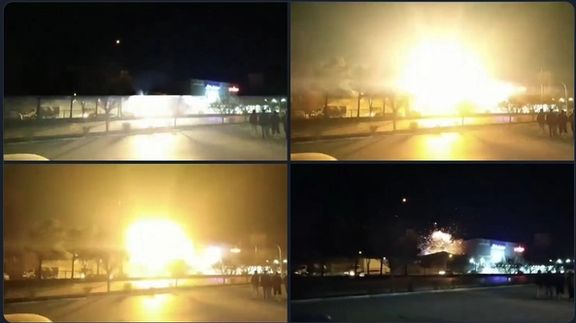
Reports and videos from Iran speak of multiple explosions and a fire at an ammunition factory in the Iranian city of Esfahan shortly after midnight local time.
Following multiple reports by eyewitnesses after midnight, January 29, that an ammunition factory in Esfahan was hit by explosions and fire, Iran's defense ministry announced that small drones attacked the complex, and called the attack “unsuccessful.” It claimed all the drones were shot down, without saying if the attack came from inside the country or from outside.
Small drones have a very short flying time and if these were used against the ammunition factory, they must have been launched from a close distance. That does not necessarily eliminate the possibility of a foreign country being behind the attack, but it would certainly prove some people in Iran carried it out.
"The explosion took place in one of the munitions manufacturing centers of the Defense Ministry and, according to an announcement by the deputy Esfahan governor for security, there were no casualties," IRIB reported.
However, eyewitnesses report and videos show the actual explosions at the factory. Some Twitter users say that the Esfahan factory was manufacturing warheads for the Shahed kamikaze drone that Iran is supplying Russia for attacks in Ukraine.
The official, Mohammad Reza Jannesar, later told state television: "The damages are being investigated as well as the causes and elements that caused this explosion and .. will be announced later."
According to some reports air defenses of Iran's traditional army and the IRGC have been put on high alert.
There were also reports on social media of explosions and smoke in northwest of the capital Tehran. These reports have not been verified.
Also, a large blaze engulfed an industrial area near the city of Tabriz, northwest Iran. The government said the fire started at a refinery producing motor oil, but the cause of the devastating blaze remains unclear.
A social media post by a group of protesters in the southwestern Khuzestan province reports an explosion in Dezful. Another report says there were air raid sirens in Hamedan’s Nozheh airbase, but these remained unverified, similar to reports from Tehran and elesewhere.
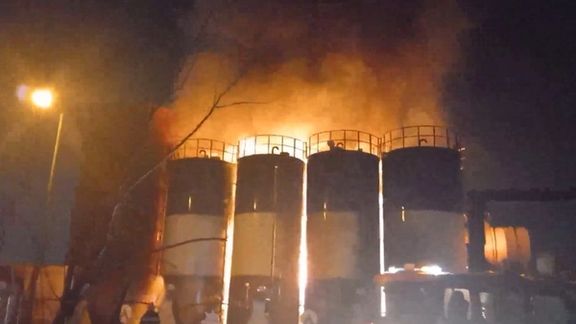
Updated at 08:00 GMT on January 29
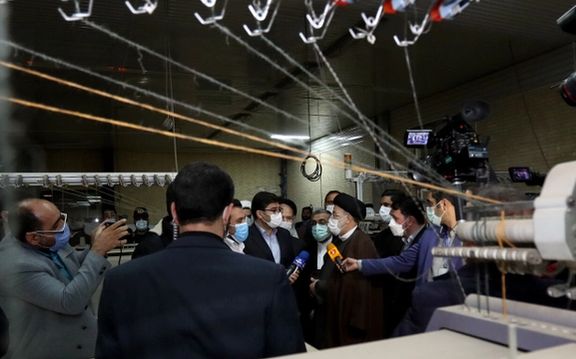
Iranian experts and media are criticizing claims by President Ebrahim Raisi that the government has created nearly one million new jobs in the past year.
Presenting the budget bill to the parliament last week, Raisi claimed there is proof that his administration has succeeded in creating over 900,000 new jobs as he had promised during his campaign.
“This claim is so strange and far from reality that I prefer not to talk about,” Kamal Athari, development researcher and economist told Bahar News Tuesday, adding that such claims are easy to make in the absence of reliable data. “How is it possible for employment to increase when the rate of economic growth has been declining?” he asked.
He also said it is noteworthy that during Raisi’s presidency even the jobs created before the pandemic and when the nuclear deal with world powers, JCPOA, was in effect were lost and inflation and people’s loss of income is threatening others such as the hospitality sector.
Athari also criticized the government for lack of coordination and an overall disorientation. “They have no plans for dealing with inflationary stagnation in the housing sector but they name housing as the engine of growth,” he said.
The claim was repeated by the Minister of Labor Seyed Sowlat Mortazavi Tuesday. “The government has succeeded in creating one million job in one year as it had promised,” he said.
Khorasan newspaper, which supports the Raisi Administration and is linked to the office of Supreme Leader Ali Khamenei, criticized Mortazavi and said the claim was in contradiction with the figures released by the Statistics Center of Iran (SCI) which shows from September 2021 to September 2022 the number of people with employment only rose by 535,000. This meant, Khorasan pointed out, that 465,000 jobs were lost even if one million jobs were created as the government claims.
Figures released by the SCI indicate that over 665,000 new job seekers of fifteen-years-old and above have entered the job market during the same period.
Speaking to Nameh News website Wednesday, Mohammad Mohajeri, a conservative journalist, warned that officials provide “fake statistics” to the president. Their eagerness to create an illusion of “achievements” would have dire consequences for the government, he maintained.
“I don’t know how long this unhelpful attitude of officials has to continue for the government to realize that faking achievements and statistics will cause the downfall of the government,” Mohajeri said, adding that there is also a concern that there may be brave experts in the government whose warnings are being ignored. “This is even a bigger calamity.”
Many on both sides of Iran's political spectrum have criticized Raisi and his government for inefficiency and lack of planning while blaming all shortcomings on previous governments including Raisi’s immediate predecessor Hassan Rouhani.
Rising Inflation and depreciation of the national currency, rial, which have been problems since 2018 when President Donald Trump left the 2015 nuclear deal are now turning into serious crises the government seems unable to address.
The point-to-point inflation rate reported by the Statistical Center of Iran (SCI) for the past Iranian month, which ended on January 20, has surpassed 50 percent, with food inflation hitting an average of over 70 percent.
In its latest report the SCI put overall inflation at 51 percent, taking into account 12 groups of goods and services. The highest jump was reported in the hotel and restaurant sector with 78.5 percent, followed by food.
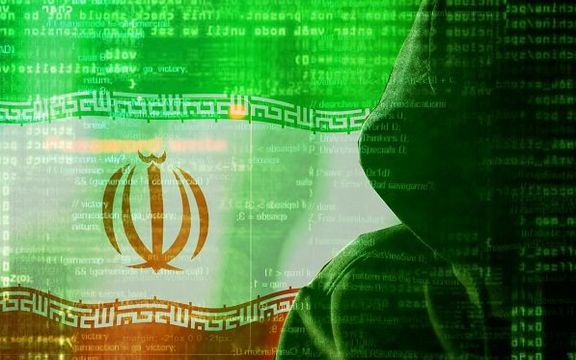
Cyber security company Secureworks Counter Threat has reported on efforts by a group affiliated to the Islamic Republic aiming to disrupt relations between Saudi Arabia and Israel.
The threat actor known as Cobalt Sapling has been spotted creating a new persona dubbed "Abraham's Ax" to target Saudi Arabia for political leverage.
"There are clear political motivations behind this group with information operations designed to destabilize delicate Israeli-Saudi Arabian relations, particularly as Saudi Arabia continues talks with Israel on normalizing relations," said Secureworks principal researcher Rafe Pilling.
Further, the security researcher noticed that Abraham's Ax mirrors the iconography, videography and leak sites of a separate threat actor known as Moses Staff. Both groups use similar logos and a WordPress blog as the medium for their leak sites.
"Iran has a history of using proxy groups and manufactured personas to target regional and international adversaries," Pilling added.
"Over the last couple of years, an increasing number of criminal and hacktivist group personas have emerged to target perceived enemies of Iran while providing plausible deniability to the Government of Iran regarding association or responsibility for these attacks. This trend is likely to continue."
Considering that experts still consider the normalization between Saudi Arabia and Israel farfetched, the Islamic Republic hopes to prevent such an agreement through disruptive activities.
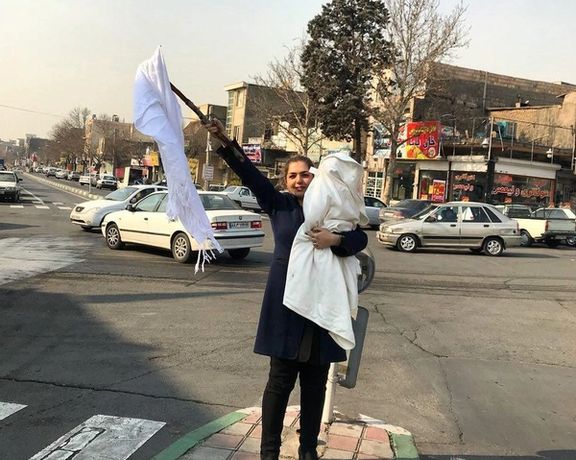
Iran’s police say warning text messages are still being sent to women drivers regarding improper hijab because "removing hijab" is a criminal offense.
Mehdi Hajian, the Spokesman of Iran’s Police said Saturday that the text messages are sent to vehicle owners who have not been wearing proper hijab in their vehicles.
In an interview with Fars news agency, affiliated with the IRGC, Hajian emphasized that according to the Islamic Penal Code, the police have a "duty" to send text messages to vehicles whose passengers do not wear the mandatory hijab.
In the past weeks, social media users reported that after a pause during the uprising of the Iranian people against the clerical rulers, the police resumed warning women with text messages. The practice is a few years old and previously women who were warned had to go to a police station and sign a pledge.
After the death in custody of Mahsa Amini in mid-September, many women showed opposition to the mandatory hijab and refused to wear headscarves in public places.
On January 10, the Prosecutor's Office of the Islamic Republic issued a directive ordering the police to deal decisively with "hijab removal".
According to the directive, the main punishment for removing hijab is between ten days to two months of imprisonment, but the courts can sentence those arrested to paying a fine and supplementary punishments.